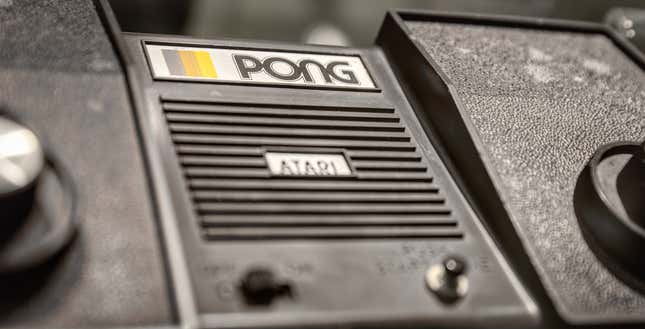
In new research this week, scientists say they’ve been able to teach mice and human brain cells how to play one of the most enduring video games in history: Pong. The novel feat suggests that even neurons on an individual level can learn and exhibit a form of rudimentary sentience, the authors say. And the research may one day pave the way toward creating computers that use brain cells to perform certain tasks at a level that today’s computers couldn’t hope to accomplish.
The research is primarily the work of scientists from Cortical Labs, a new biotech startup in Melbourne, Australia. It’s intended to be the proof of concept for a technology that the group is calling biological computing—one that relies on the distinct capabilities of the brain.
“There is considerable research looking at building better information processes, from machine learning, to neuromorphic, to quantum computing,” lead study author Brett Kagan, chief scientific officer at Cortical Labs, told Gizmodo in an email. “However, biological brains display unique traits we are not yet able to recreate with hardware alone. Brains can process large amounts of information very quickly with minimal power requirements and adapt to changing environments. We were interested in how brain cells display this intelligence so we asked the question: why try to mimic what you can harness?”
To create the Pong-playing set-up, the team integrated brain stem cells cultured in the lab from either mice or humans into a silicon chip. The chip was designed to read and write information via electronic signals. This “DishBrain” system was then dropped into a simulated environment—Pong. The team developed software that could read the electrical signals from the cells as they fired and apply it to the game, namely the paddle that keeps the ball aloft; this software could also provide feedback and send information to the cells on how their signals changed the game world, meaning if the paddle actually hit the ball. With this feedback, the cells were seemingly able to reorganize how they fired and essentially “learned” how to better play Pong in as little as five minutes of real-time gaming. This goal-directed change in behavior over time, the authors argue, shows that even cells in a petri dish can manifest a sort of inherent intelligence under the right conditions.
The findings were published Wednesday in the journal Neuron.
Kagan and the team believe that biological computing can eventually provide a wide array of benefits, such as improving how we find new potential drugs and model diseases among other things. But for now, this research is only the first step in getting there.
“We needed to have a system that could test how we can interact with neurons to showcase intelligence and goal-directed activity,” Kagan said. “We can now apply the system in new ways to start to investigate [these advances] while continuing to develop the base technology to enable new applications.”
The team has already begun to test out the system in other game environments. And they’re next hoping to make the technology more accessible and reliable.
“Extending on this, we are going to explore how certain drugs affect learning or diseases that impair cognition, along with improving the hardware, software, and wetware behind these systems,” Kagan said. “Ultimately, by being able to use these systems to better understand, and eventually harness, how neurons display intelligence, it will open up a plethora of applications.”